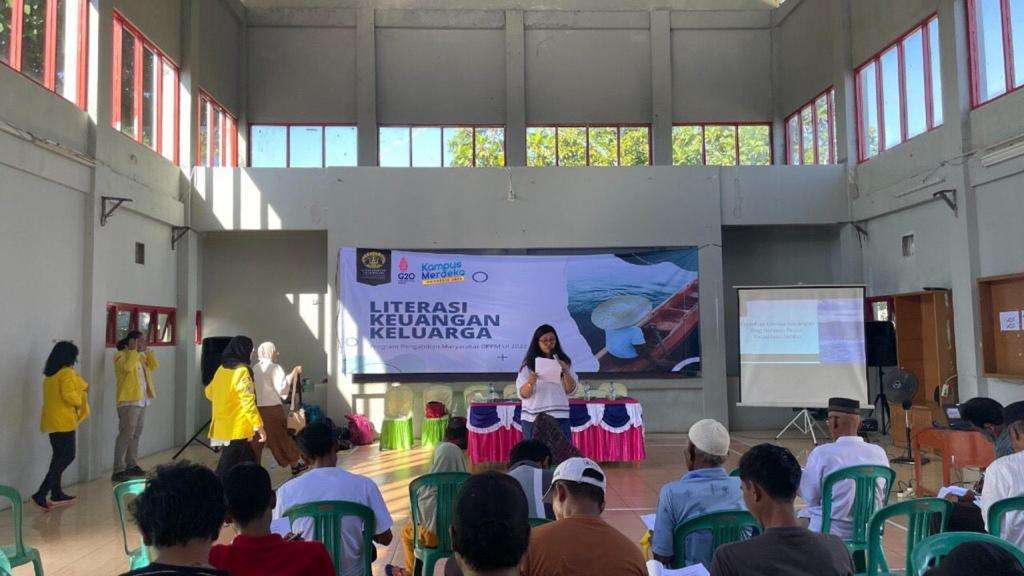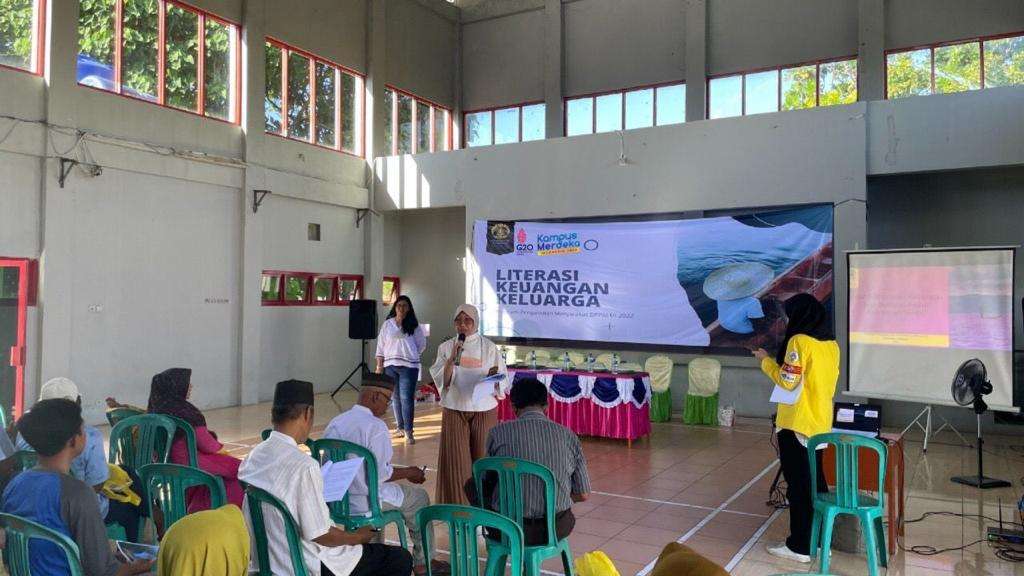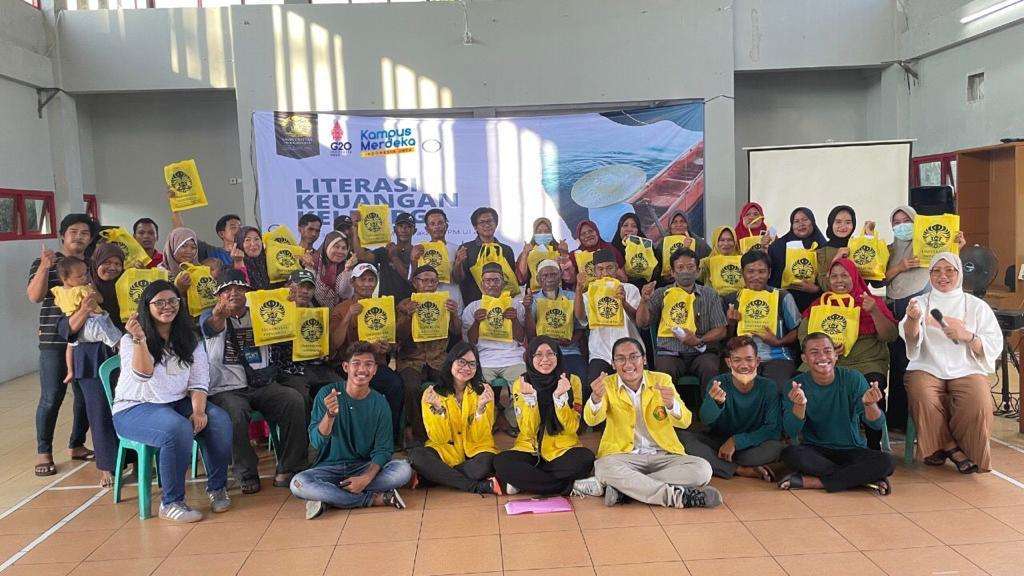Depok-As a maritime country, Indonesia can take advantage of improving the quality of its economy by absorbing the concept of a blue economy. According to the World Bank, the blue economy is the use of marine resources that are environmentally sound to support economic growth, welfare, and livelihoods as well as the preservation of marine ecosystems. There are various sectors included in it, such as fisheries, renewable energy, tourism, water transportation, waste management, to climate change mitigation.
In the fishery sector, fishermen are the main target in implementing the blue economy concept. Management of the marine resource supply chain is the insight and knowledge they need to understand to maintain the benefits of marine ecosystems.
Seeing the benefits of the blue economy for fishermen, the Vocational Education Program at the Universitas Indonesia (UI) through a community service team consisting of Hadining Kusumastuti, S.Sos., M.Ak, CA, CMA, CRMP; Dr. Diaz Pranita, M.M.; and Mila Viendyasari, S.Sos., M.Si., providing financial literacy training to fishermen on Tidung Island, Thousand Islands.
The head of community service, Hadining Kusumastuti S.Sos., M.Ak, CA, CMA, CRMP revealed that the use of the blue economy concept in community service can be beneficial for all aspects up to the even distribution of the national fisheries economy.
 (Photo: Hadining Kusumastuti explains the importance of financial literacy to local residents)
(Photo: Hadining Kusumastuti explains the importance of financial literacy to local residents)
The community service program implemented puts forward the concept of the blue economy. Besides being useful for maintaining marine health, the blue economy can also open up investment opportunities, employment opportunities, also equitable distribution of national economic growth because the distribution of fishery economic growth tends to the eastern part of Indonesia, thereby helping to improve the standard of living of people in the region. The team hopes that this community service activity can build awareness of stakeholders in the Thousand Islands to immediately encourage tourism improvement as soon as possible.
The financial problems that often plague fishing families also require attention so that the blue economy can run optimally. That is why financial literacy training for fishing families on Tidung Island is also provided as part of the solution.
When fishermen are financially literate, they can carefully calculate the potential income from fishing and what expenses are according to priority. Financial literacy is expected to be an example for other islanders to implement good financial management. This has also become a determinant of the economic stability of the Thousand Islands community, especially Tidung Island, so that when the blue economy concept has gone well, the community is ready to enjoy the results and also has an impact on a more organized tourism culture.
To build the blue economy, joint surveys and observations with related agencies on several islands of the Thousand Islands have been carried out. An important finding that needs to be improved immediately to support the blue economy is the cleanliness of the sea and the cleanliness of the lodging environment. Garbage is still seen piling up and scattered, and the quality of clean water is not evenly distributed, so stakeholders and the community must work together to solve the problem.
 (Photo: Mila Viendyasari explaining the blue economy concept to the people of Tidung Island, Thousand Islands)
(Photo: Mila Viendyasari explaining the blue economy concept to the people of Tidung Island, Thousand Islands)
The community service activities carried out by the UI Vocational are supported by the UI Directorate of Community Service and Empowerment. From this activity, research will be developed and integrated entitled “Financial Literacy of Fisherman Families as Part of Blue Economy Development in the Thousand Islands”.
The Director of the UI Vocational Education Program, Padang Wicaksono, S.E, Ph.D., supports the implementation of this community service activity. “Utilizing the blue economy concept can be a breath of fresh air that will stimulate tourism, and change people’s mindsets so that they can manage tourism better and responsibly. I hope this program can continue, so that it becomes a benchmark for the water industry sector in other regions in order to increase economic growth in Indonesia,” Padang explained.


